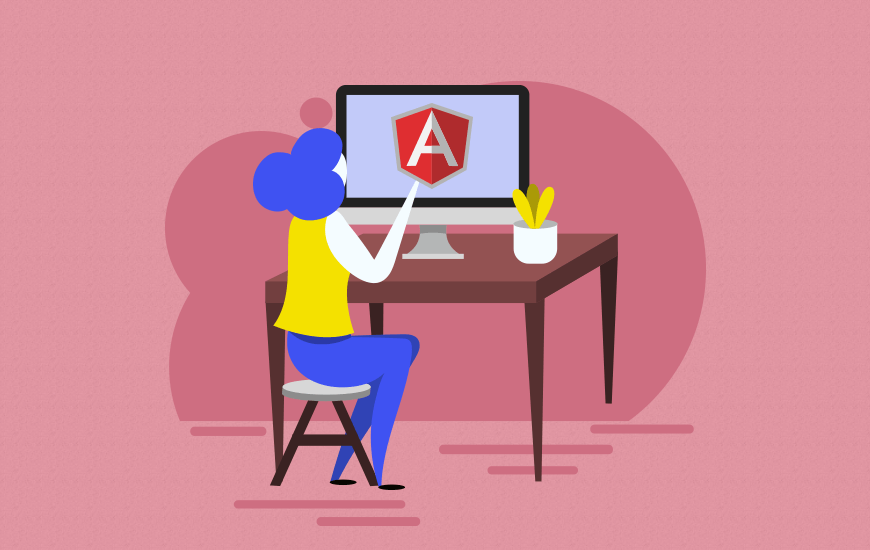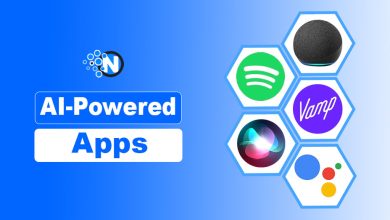What Apps Can be Built With Angular? A Short Guide for Entrepreneurs and Managers

Are you an entrepreneur or manager looking to develop an app? If so, you’re probably wondering what technologies you should use to build your app. While there are many options out there, one technology that stands out is Angular.
Angular is a popular open-source framework for building web and mobile apps. It’s used by companies like Google, Microsoft, and IBM to build high-performance, scalable, and maintainable apps. But what types of apps can you build with Angular?
That’s what we’re here to answer.
In this short guide, we’ll explore the types of apps that can be built with Angular and why it’s a great choice for entrepreneurs and managers. We’ll also discuss some of the challenges when using Angular.
So, whether you’re looking to build a web app, mobile app, desktop app, or progressive web app (PWA), this guide has got you covered. Let’s get started!
Apps That Can Be Created Using Angular
Angular is a versatile framework that can be use to build a wide range of apps. Here are some of the types of apps that can be built with Angular:
Web apps
Angular is a great choice for building web apps because it provides developers with a range of features and tools to create dynamic and responsive user interfaces.
One of the key benefits of using Angular for web app development is its ability to provide real-time data binding, which means that changes to the data in the app are immediately reflect in the user interface. This helps to create a more interactive and engaging user experience.
Another benefit of using Angular for web app development is its modular architecture. This allows developers to break down complex projects into smaller, more manageable pieces, making it easier to maintain and update the app over time.
Additionally, Angular provides built-in support for testing, which makes it easier to ensure the app is functioning correctly and free from bugs.

Mobile apps
Angular can also be use to build high-performance mobile apps for both iOS and Android devices. One of the advantages of using Angular for mobile app development is that it allows developers to use a single codebase to create apps for both platforms. This can save time and resources, as well as reduce the amount of code that needs to be written.
Angular also offers support for native device features such as a camera, microphone, and GPS, which allows developers to create apps with rich functionality.
Additionally, Angular provides a range of tools and frameworks that can be use to build mobile apps, such as Ionic and NativeScript.
Desktop apps
Angular can be use to build desktop apps that can run on Windows, macOS, and Linux operating systems. Desktop apps built with Angular can provide a more seamless and integrated experience than web apps, as they can access system resources and run as a standalone application.
This can be particularly useful for apps that require a lot of processing power or that need to interact with other applications on the user’s computer.
Desktop apps built with Angular can be package using tools like Electron or NW.js, which allows them to be distribute through app stores or downloaded directly from the developer’s website.
Additionally, Angular provides support for creating desktop apps with the Angular Material library, which provides a range of pre-built UI components that can be use to create a consistent and visually appealing user interface.
Progressive web apps (PWAs)
PWAs are a type of web app that provides a native-like experience to users. It built with Angular can be access from a user’s home screen, just like a native app, and they can provide fast and reliable performance, even in areas with poor network connectivity.
PWAs built with Angular can take advantage of the Service Worker API, which allows the app to function offline or with limited network connectivity. Angular provides support for creating PWAs with the Angular Service Worker, which can be use to cache app resources and provide push notifications.
Benefits of Using Angular for App Development
There are many advantages of using Angular for app development. Here are some of the most important ones:
Modularity
Angular uses a modular architecture that allows developers to break down large apps into smaller, more manageable parts. This is done through the use of modules, which are collections of relate components, services, and other functionality.
Modules make it easier to organize code and keep it maintainable over time. They also allow developers to reuse code in multiple parts of an app, which can save time and improve overall app performance.
Two-way data binding
Two-way data binding is a feature in Angular that allows changes made in the user interface to be automatically reflect in the data model, and vice versa. This is done through the use of directives, which are instructions that tell Angular how to manipulate the DOM (Document Object Model) base on changes to the data model.
Two-way data binding reduces the amount of code needed to keep data and user interfaces in sync, which can make app development faster and easier.
Dependency injection
Dependency injection is a feature in Angular that makes it easy to manage dependencies between components and services. It works by allowing developers to declare dependencies in the code, which are then automatically inject into the component or service when it is create.
This makes it easier to create and manage complex apps, since developers don’t have to manually manage dependencies or write lots of code to instantiate objects and services.
Code consistency
It provides a consistent coding style and structure that makes it easier for developers to work on large projects. This is achieve through the use of conventions, such as using TypeScript and following the Angular Style Guide, which provide a common language and structure for developers to use.
Consistent coding also makes it easier to maintain and scale apps over time, since developers can quickly understand and work with code written by others.
Large and active community
Angular has a large and active community of developers who are constantly improving and updating the framework. This means that developers can rely on a wealth of resources, including tutorials, documentation, and support, to help them build better apps.
The community also provides feedback and bug reports, which help the Angular team improve the framework over time.
Performance
Its design to optimize performance and reduce the amount of code needed to build apps. This is achieve through features such as Ahead of Time (AoT) compilation, which pre-compiles an app’s code for faster load times and Change Detection, which minimizes the number of times an app needs to check for changes in the data model.
Performance optimization can help make apps faster, more responsive, and more user-friendly, which can improve overall user satisfaction and retention.
Challenges and Considerations
While Angular offers many benefits for app development, there are also some challenges and considerations that developers should keep in mind.
Here are a few of the most important:
Learning curve
Angular has a steep learning curve compared to other front-end frameworks. This is partly because it uses a lot of concepts and terminology that may be unfamiliar to developers who are new to the framework.
However, there are many resources available to help developers get up to speed, including documentation, tutorials, and online courses.
Complexity
Angular is a comprehensive framework that offers a lot of features, which can make it complex to use. Developers may need to spend more time planning and architecting their apps to ensure they are organize and maintainable over time.
Performance
While Its offers excellent performance out of the box, it can be easy to inadvertently introduce performance bottlenecks if you’re not careful. Developers should be mindful of factors like network latency, caching, and image optimization to ensure their apps load quickly and perform well.
Compatibility
It is not always compatible with older browsers or devices. Developers may need to use polyfills or other workarounds to ensure their apps work as expect across a wide range of devices and browsers.
Upgrades
As with any technology, it is constantly evolving, and new versions are release on a regular basis. Developers need to stay up-to-date with the latest releases and plan for upgrades accordingly to ensure their apps continue to work properly and take advantage of the latest features.
Conclusion
Angular is a versatile and powerful framework that can be use to build a wide range of apps, from web and mobile apps to desktop apps and PWAs. With its comprehensive features and excellent performance, Angular is a popular choice among developers and businesses alike.
However, it’s important to keep in mind the challenges and considerations of working with Angular. By taking these factors into account, developers can create high-quality, scalable, and maintainable apps with Angular.
For entrepreneurs and managers looking to build apps with Angular, it’s important to Hire Angular developers who can guide them through the development process and ensure that their app meets their business needs and goals.
Angular is an excellent choice for building robust, modern, and user-friendly apps that can provide a great user experience and help businesses succeed in today’s digital landscape.




